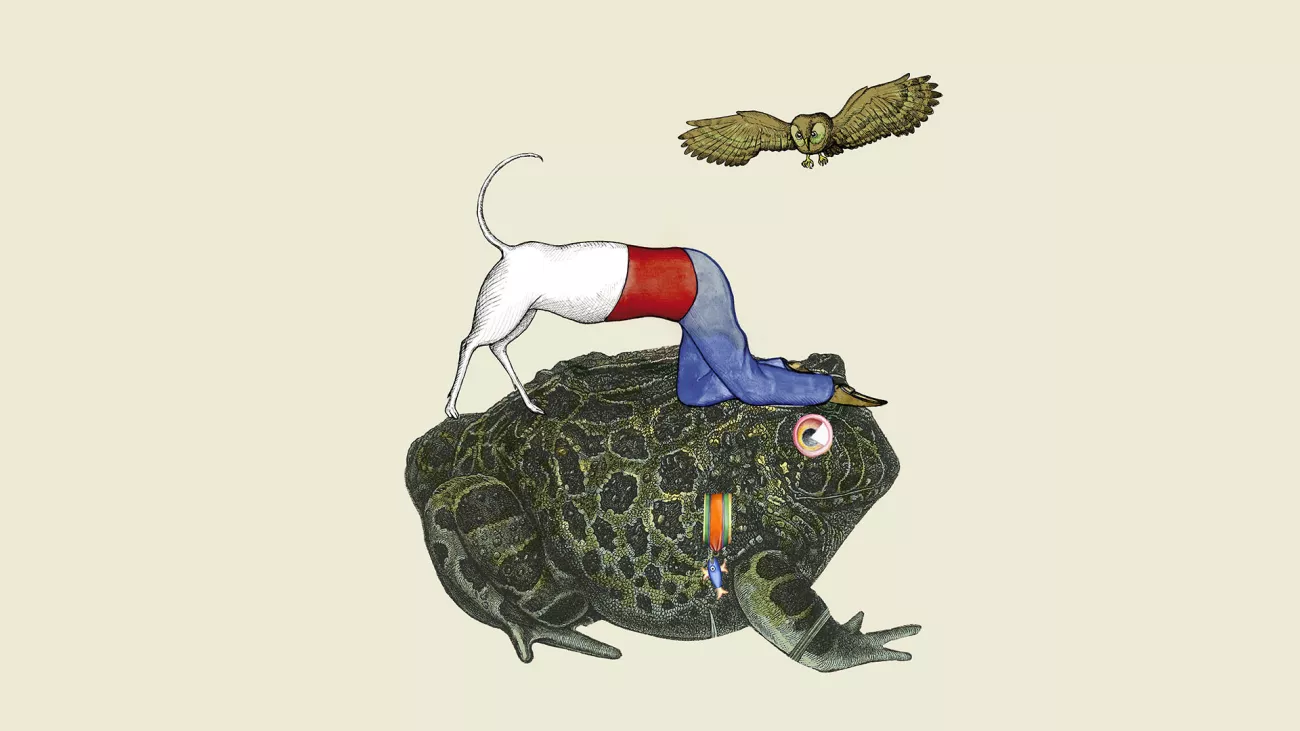Comédie lyrique in a prologue and three acts. Libretto by Adrien-Joseph Le Valois d’Orville. Based on the comedy by Jacques Autreau
Premiered on 31 March 1745 at the Grande Ecurie in Versailles. Not recommended for people under 12.

Jean-Philippe Rameau is a crucial landmark in French music. This contemporary of Handel revolutionized the orchestral idiom and composed some of the greatest operatic masterpieces of his century.
He debuted at the Opéra Comique. At the height of his fame and on the wedding festivities of the Dauphin, Rameau regained the spirit of burlesque in his one and only comedy, Platée, a scathing satire of opera in which the gods and the animals vie in wickedness on a score that is both gorgeous and amazing.
The queen of the moors, Platée the nymph, is the victim of a cruel plot contrived by Jupiter to castigate the jealousy of his wife Juno with the help from Olympus and the raging elements.
Sung by a man and surrounded by frogs, Platée shatters conventions: declamation, dance and singing are turned upside down. Conducted by William Christie and Robert Carsen, Folly personified brings credibility to the buffo genre.
Performance duration : 3h with an interval
Platée will be broadcast on :
Mezzo & Mezzo Live HD live on 27 March at 8pm
France Musique on 12 April 2014 at 7pm
Culturebox from 3 April to 10 October 2014
Prologue
After a night of partying, the actor Thespis is woken from a drunken stupor by his equally drunken friends. They urge him to continue his praise of Bacchus. Momus (the personification of Satire), and Thalie (the Muse of Comedy), join the party. They ask Thespis to join them in creating a new form of drama which would satirize the faults both of humans and gods. Momus suggests they should base their satire on Jupiter’s famous attempt to cure Juno of her jealousy. Amor interrupts them, declaring that it would be impossible to stage this new entertainment without him. Led by Thespis, they invoke Bacchus to help them create their new form of drama.
Act 1
Mercury explains to Citheron that Jupiter has instructed him to deal with the problem of Juno’s jealousy. Citheron has the perfect plan: Jupiter should pretend to be in love with Platée, a ridiculous and unattractive nymph who believes every man she meets to be madly in love with her. Juno is to be made jealous of Jupiter’s supposed new mistress and intercept them together. When Juno discovers how absurd Platée is, she will reaise how unreasonable her jealousy has been, and the heavenly couple will be reunited. This will also allow Jupiter to continue unimpeded with any future amorous liasons. Platee now appears with her attendant Clarine. Inspite of his constant denials, Platée is convinced that Citheron is madly in love with her. But when Citheron and Mercury inform her that Jupiter has fallen under her spell, she changes her attentions and her ambitions: Platée prepares to meet the King of the Gods…
Act 2
Mercury has persuaded Juno to search for her unfaithful husband in Athens, allowing him and Citheron to develop their plan in peace. Platée arrives and waits for Jupiter. The great God appears, first as a cloud, then as a donkey, then as an owl, before finally appearing as himself, preceded by a flash of lightning. Jupiter’s friends also arrive and pretend to admire Platée, while actually ridiculing her. Finally, la Folie herself makes a surprise appearance. She sings of the power of Love and Music, while recounting the tales of Apollo and Daphne, and Zephire and Flora. Platée’s delight at her impending marriage continues to grow.
Act 3
Having failed to find Jupiter in Athens, Juno returns home in fury. She is persuaded by Mercury to hide. Platée and Jupiter enter together with Jupiter’s friends, who pretend to celebrate the impending union. When Platée wonders why Amor and Hymen have not come to bless their marriage, Mommuss, one of Jupiter’s attendants, is quickly transformed into a makeshift Amor. La Folie also joins the party. As Jupiter and Platée prepare for bed, Juno storms in. As soons as she sees Platée she bursts out laughing, finally realizing that the whole thing was nothing but a joke. Everyone joins her in uproarious laughter. Jupiter and Juno are reconciled and return to their heaven, while Platée, ridiculed and humiliated, is left alone on earth.
Robert Carsen
Music direction, Paul Agnew • Staging and lighting, Robert Carsen • With Marcel Beekman, Simone Kermes, Virginie Thomas, Cyril Auvity, Emmanuelle de Negri, Edwin Crossley-Mercer, João Fernandes, Marc Mauillon, Emilie Renard • Choir and orchestra, Les Arts Florissants
See all the castThursday, March 20, 2014 - 8:00pm
Saturday, March 22, 2014 - 8:00pm
Monday, March 24, 2014 - 8:00pm
Tuesday, March 25, 2014 - 8:00pm
Thursday, March 27, 2014 - 8:00pm
Sunday, March 30, 2014 - 3:00pm
3:00 - Salle Favart
120, 95, 72, 41, 15, 6€
Cast

















Dancers, Camille Brulais, Anaëlle Echalier, Fanny Gombert, Anna Konopska, Suzanne Meyer, Haruka Miyamoto, Gaël Alamagrot, Alexandre Bado, Jean Gérald Dupau, Julien Gaillac
Figurants, Erwan Besnard, Jean-François Martin, Benoit Michaud, Basile Peclars, Jean-Philippe Poujoulat, Mathieu Revault, Anthony Roullier, Georges Vauraz
Choir et orchestra, Les Arts Florissants
Co-production, Opéra Comique, Theater an der Wien
Associate partner, Les Arts Florissants, with the special support of The Selz Fondation
Edition, Société Rameau Paris, represented by Alkor-Edition Kassel, République Fédérale d’Allemagne
Partnership


































